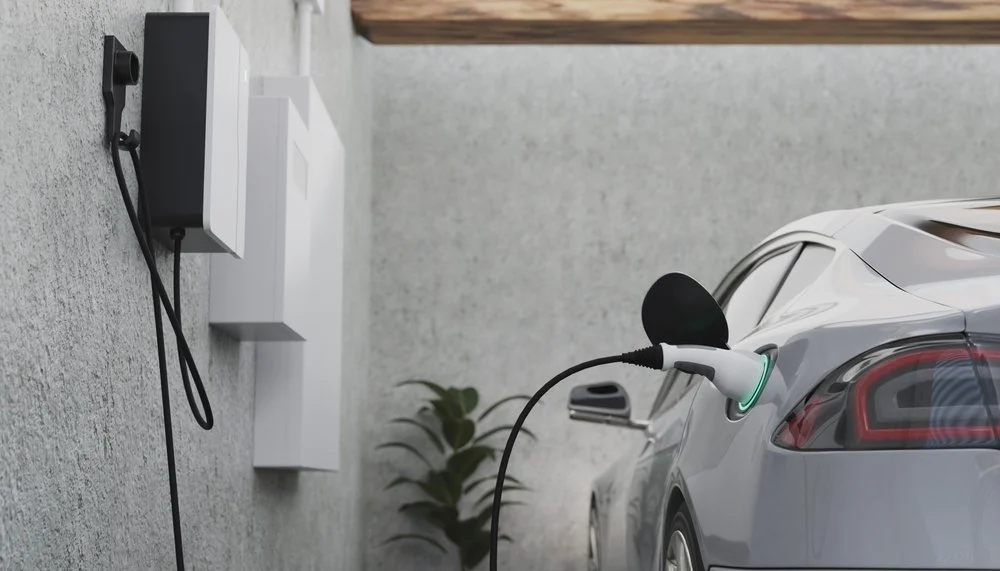Cash Allowance to Electric Car Salary Sacrifice: The Smart Financial Move for UK Employees
Source: Shutterstock
Many UK employees receive cash allowances from their employers as an alternative to traditional company cars, but few realise the significant financial advantages of channelling this allowance through an electric car salary sacrifice scheme. With the current 3% Benefit-in-Kind rate for electric vehicles and potential savings of 20-50%, combining your cash allowance with salary sacrifice creates a powerful financial strategy that maximises your vehicle budget while minimising tax obligations.
Understanding the Financial Advantage
A cash allowance is a fixed monetary amount provided by employers to help employees cover vehicle costs for work purposes. However, when you use this allowance through The Electric Car Scheme, you can transform this fixed amount into significantly greater purchasing power through the tax efficiencies of salary sacrifice.
The key advantage lies in how electric car salary sacrifice schemes work with pre-tax salary deductions. Rather than receiving your cash allowance as fully taxable income, salary sacrifice reduces your taxable income whilst providing access to comprehensive vehicle packages that include insurance, maintenance, breakdown cover, and often home charger installation.
Consider an employee receiving a £6,000 annual cash allowance in the 40% tax bracket. Using traditional approaches, this becomes approximately £3,600 after tax and National Insurance deductions. Through salary sacrifice, that same £6,000 works much harder, potentially accessing vehicles and packages worth significantly more whilst reducing overall tax obligations.
Why Cash Allowance Conversion Makes Sense
Converting your cash allowance through salary sacrifice offers compelling advantages over traditional vehicle financing. Unlike private leasing arrangements where you bear all responsibility for insurance, maintenance, and unexpected repairs, The Electric Car Scheme provides comprehensive packages that eliminate these concerns entirely.
The current 3% Benefit-in-Kind rate for electric vehicles creates exceptional value, particularly when combined with access to premium models that might otherwise be unaffordable. Whether you're interested in a Tesla through salary sacrifice, the latest BMW electric models, or efficient Nissan EVs, the tax efficiency means your effective budget stretches considerably further.
The comprehensive nature of salary sacrifice packages also eliminates the administrative burden associated with cash allowances. Rather than managing separate insurance policies, maintenance schedules, and unexpected repair costs, everything is bundled into a single monthly payment that's deducted before tax calculations.
Addressing Grey Fleet Risks for Employers
From an employer perspective, converting cash allowances to salary sacrifice schemes addresses significant grey fleet challenges. Grey fleet refers to employees using personal vehicles for business purposes, creating complications around insurance coverage, safety standards, and maintenance compliance.
When employees use cash allowances for private vehicle arrangements, employers often struggle to ensure consistent safety standards or track emissions for corporate reporting. Converting to electric car salary sacrifice ensures all vehicles meet high safety and environmental standards whilst supporting corporate sustainability goals.
The predictable cost structure also benefits employer budgeting. Rather than variable cash allowance arrangements, The Electric Car Scheme offers Complete Employer Protection, providing certainty around costs whilst reducing administrative overhead associated with grey fleet management.
Strategic Considerations and Timing
While the benefits are compelling, cash allowance conversion through salary sacrifice requires careful consideration. Salary sacrifice schemes typically involve 2-4 year commitments, which may not suit employees preferring maximum flexibility. The focus on electric vehicles also means evaluating whether electric car range and charging infrastructure align with your driving patterns.
However, current timing is particularly favourable. The 3% BiK rate for electric vehicles represents optimal conditions that will gradually increase to 9% by 2029. Early adoption maximises financial benefits compared to waiting, particularly given the expanding range of available electric vehicles and improving charging infrastructure.
The electric vehicle market continues developing rapidly, with new models launching regularly and technology improving consistently. Converting your cash allowance through salary sacrifice provides access to latest developments whilst securing current favourable tax treatment.
Making the Transition
Getting started involves evaluating your current cash allowance arrangement and identifying potential savings through salary sacrifice conversion. If your employer doesn't currently offer electric car salary sacrifice schemes, presenting the business case around reduced grey fleet risks and enhanced employee benefits can be compelling.
Once approved, working with The Electric Car Scheme team helps identify suitable vehicles within your cash allowance budget. Whether you need a practical family car, efficient small vehicle, or premium executive model, the expanded budget through tax efficiency opens up options that wouldn't be available through traditional cash allowance usage.
The implementation process typically involves initial consultation, vehicle selection, employer agreement preparation, and comprehensive handover including home charger installation where beneficial.
Maximising Your Employment Benefits
Converting your cash allowance through electric car salary sacrifice represents a strategic approach to maximising employment benefits. The combination of current 3% BiK rates, comprehensive vehicle packages, and access to premium electric vehicles creates compelling value that traditional cash allowance usage cannot match.
The decision requires evaluating personal circumstances, driving requirements, and commitment preferences, but for many employees, the financial advantages are substantial. As BiK rates gradually increase over coming years, current conditions provide optimal timing for conversion, whether you're seeking tax efficiency, better vehicle access, or supporting your employer's environmental objectives.
Ready to explore how your cash allowance could work harder through electric car salary sacrifice? Contact The Electric Car Scheme today to discover the potential savings and vehicle options available through strategic allowance conversion.
The Electric Car Scheme cannot offer specific tax advice - to understand the full picture as it relates to you or your company, contact a dedicated tax specialist.
Are you an employer?
BOOK A DEMOAre you an employee?
SEE AVAILABLE CARSYou might also like…
Last updated: 26/08/2025
Our pricing is based on data collected from The Electric Car Scheme quote tool. All final pricing is inclusive of VAT. All prices above are based on the following lease terms; 10,000 miles pa, 36 months, and are inclusive of Maintenance and Breakdown Cover. The Electric Car Scheme’s terms and conditions apply. All deals are subject to credit approval and availability. All deals are subject to excess mileage and damage charges. Prices are calculated based on the following tax saving assumptions; England & Wales, 40% tax rate. The above prices were calculated using a flat payment profile. The Electric Car Scheme Limited provides services for the administration of your salary sacrifice employee benefits. The Electric Car Scheme Holdings Limited is a member of the BVRLA (10608), is authorised and regulated by the FCA under FRN 968270, is an Appointed Representative of Marshall Management Services Ltd under FRN 667174, and is a credit broker and not a lender or insurance provider.
Copyright and Image Usage: All images used on this website are either licensed for commercial use or used with express permission from the copyright holders, in compliance with UK and EU copyright law. We are committed to respecting intellectual property rights and maintaining full compliance with applicable regulations. If you have any questions or concerns regarding image usage or copyright matters, please contact us at marketing@electriccarscheme.com and we will address them promptly.




